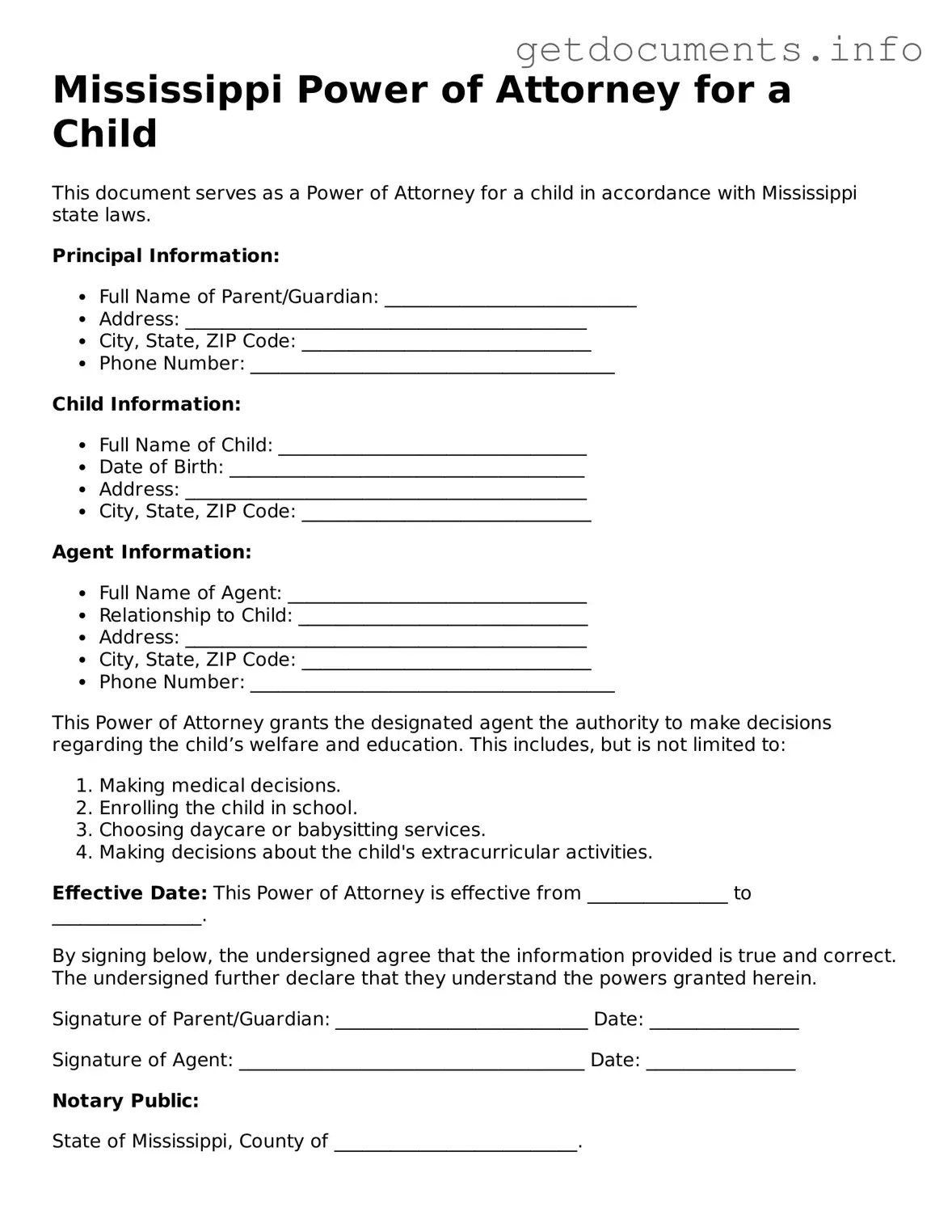Free Power of Attorney for a Child Template for Mississippi
The Mississippi Power of Attorney for a Child form allows a parent or legal guardian to designate another adult to make decisions on behalf of their child. This legal document ensures that the designated person can manage the child's affairs, such as healthcare and education, in the parent's absence. For those needing to establish this arrangement, consider filling out the form by clicking the button below.
Access Power of Attorney for a Child Editor

Free Power of Attorney for a Child Template for Mississippi
Access Power of Attorney for a Child Editor
Got places to be? Complete the form fast
Fill out Power of Attorney for a Child online and avoid printing or scanning.
Access Power of Attorney for a Child Editor
or
⇩ PDF File
